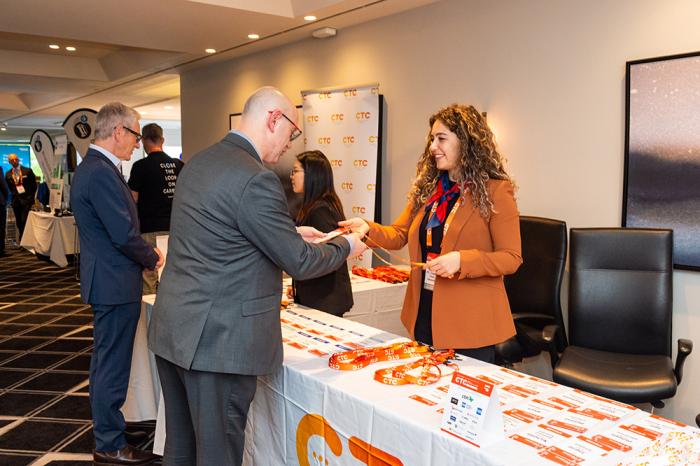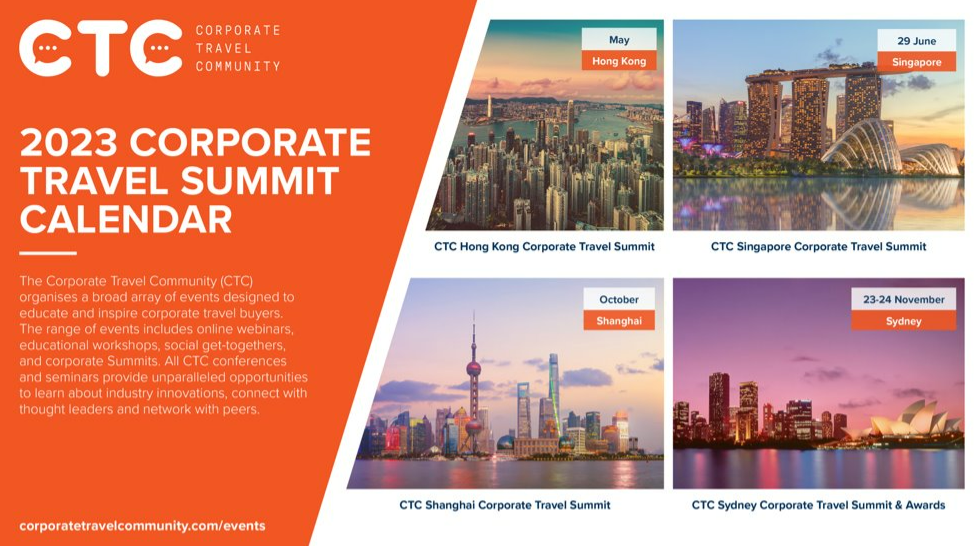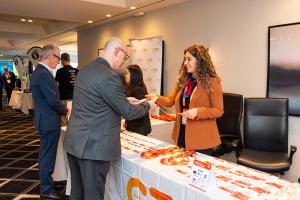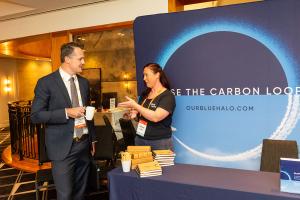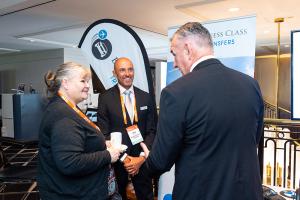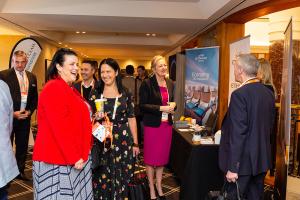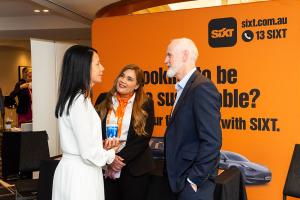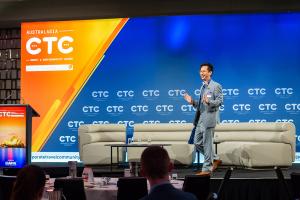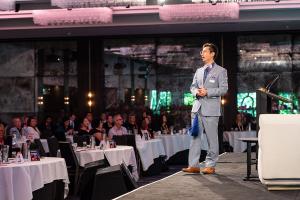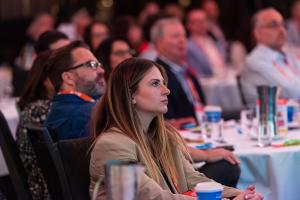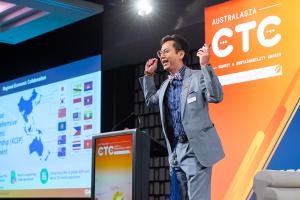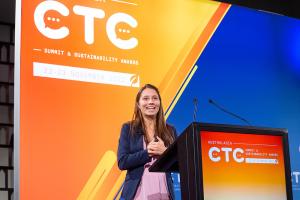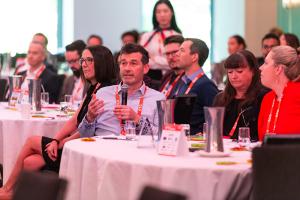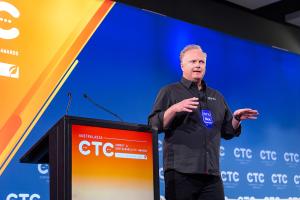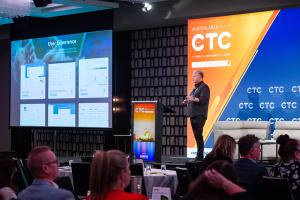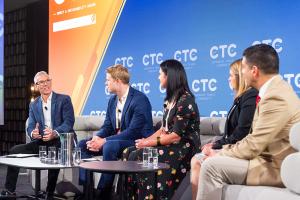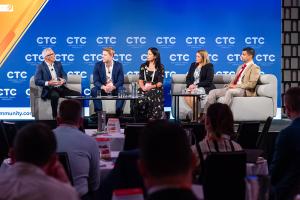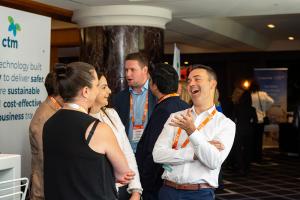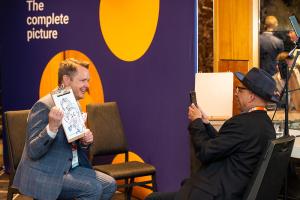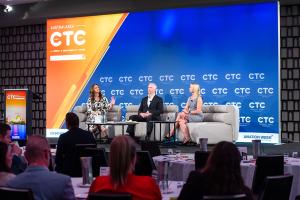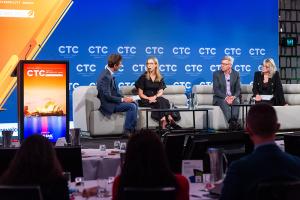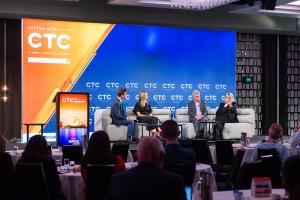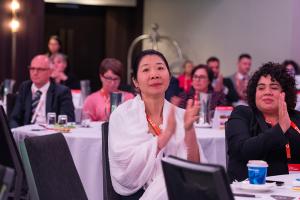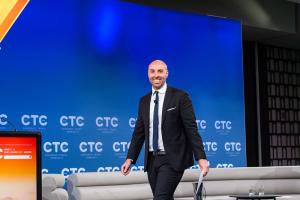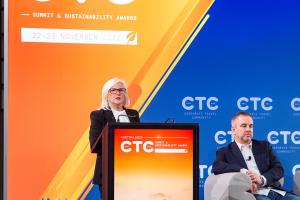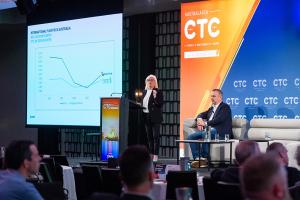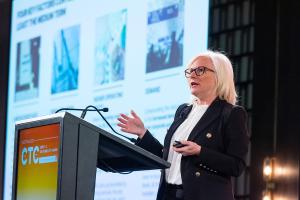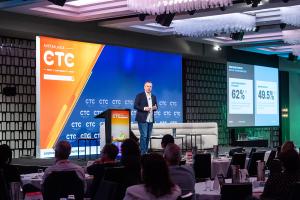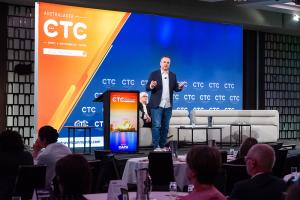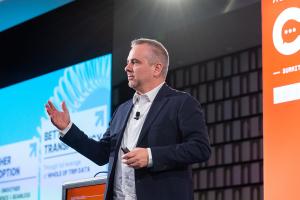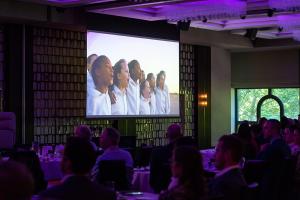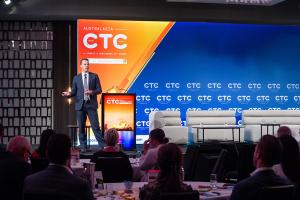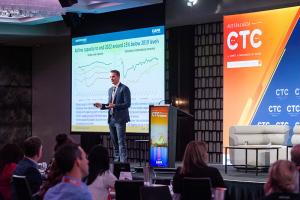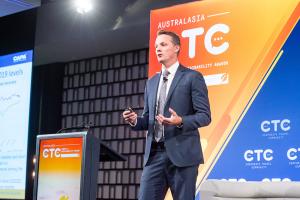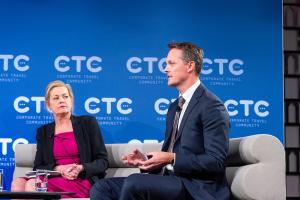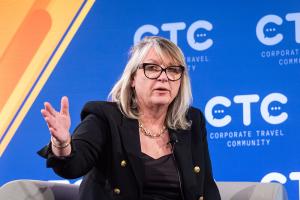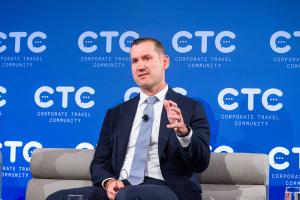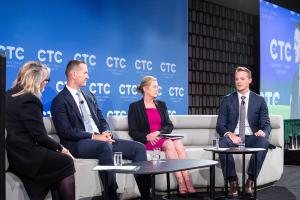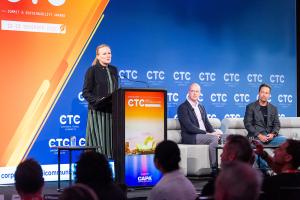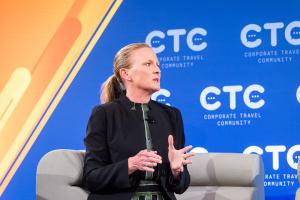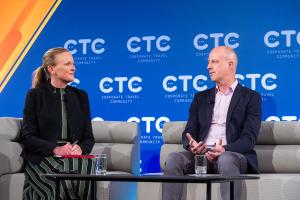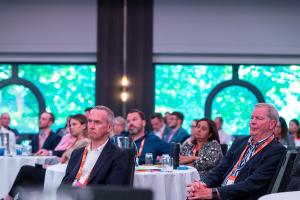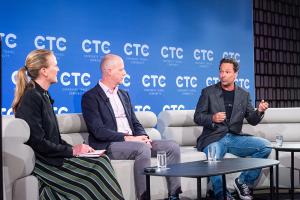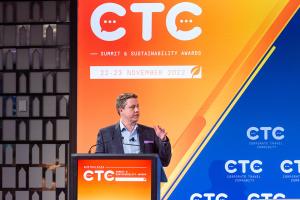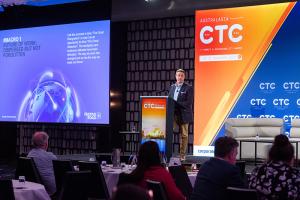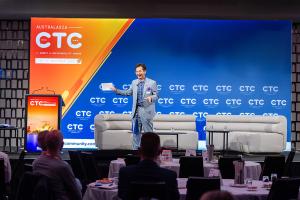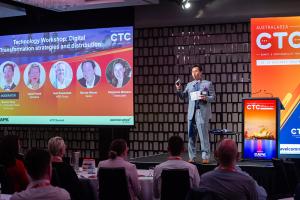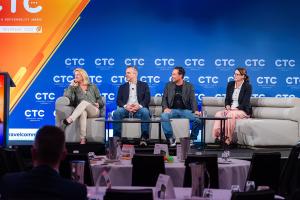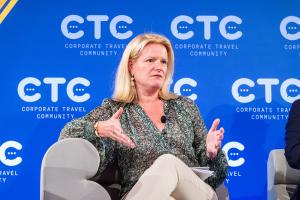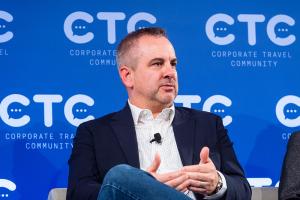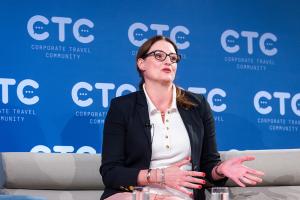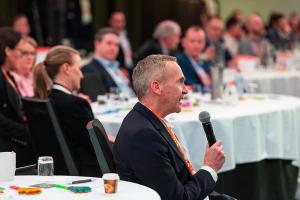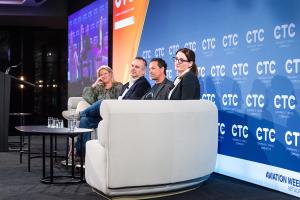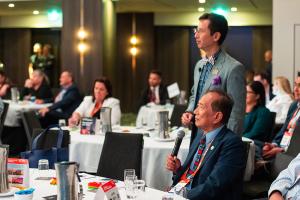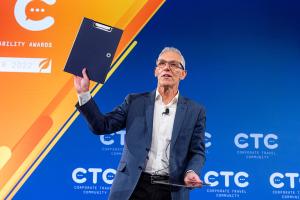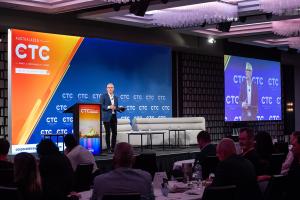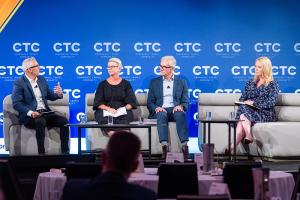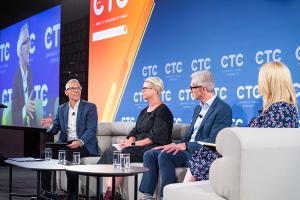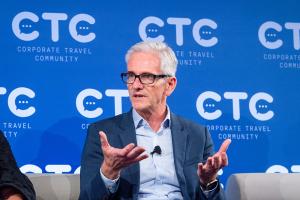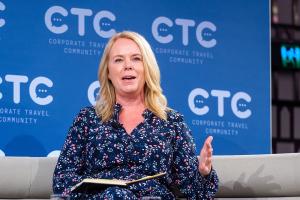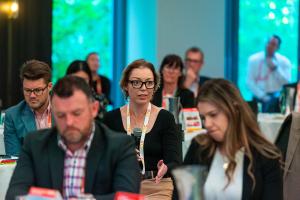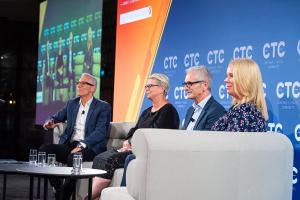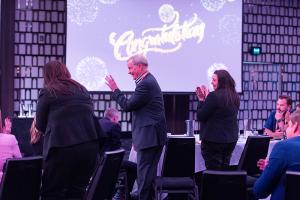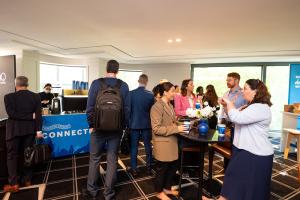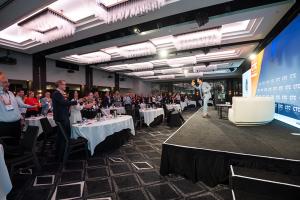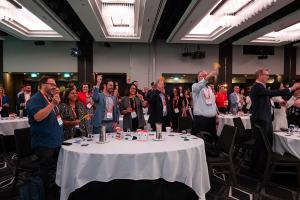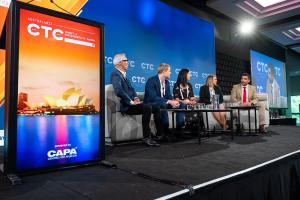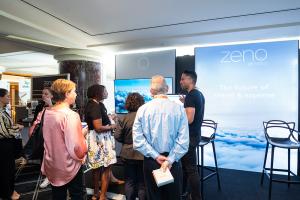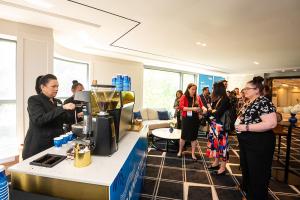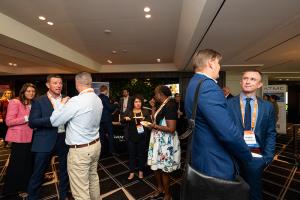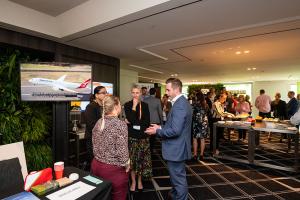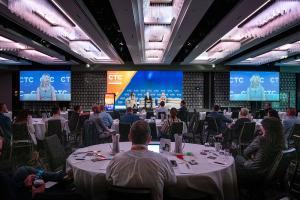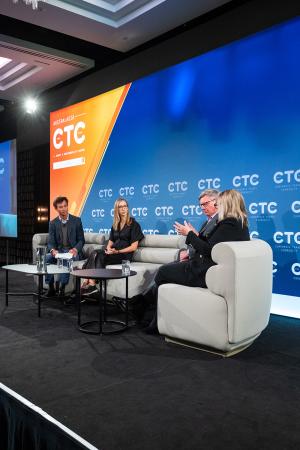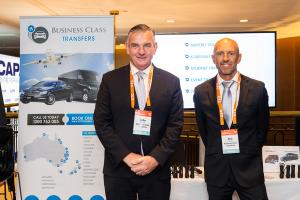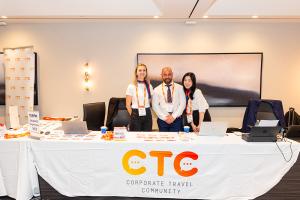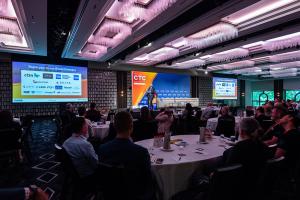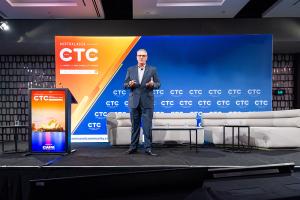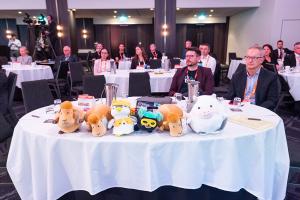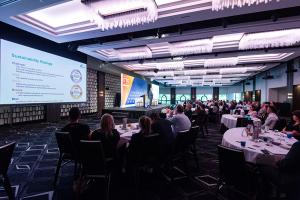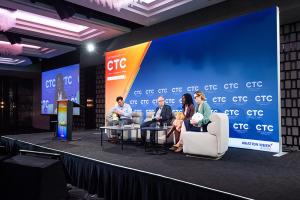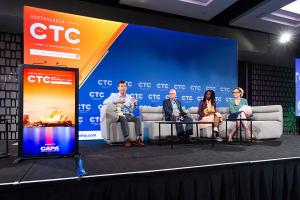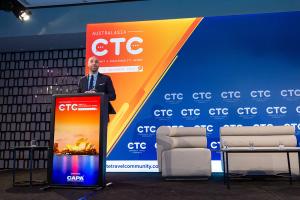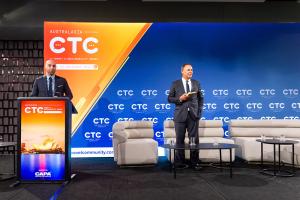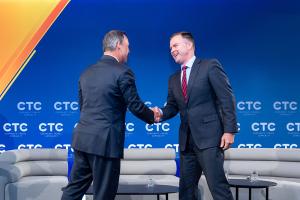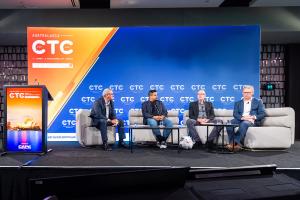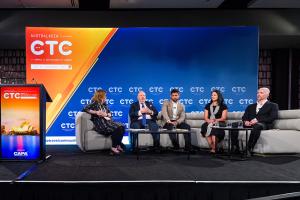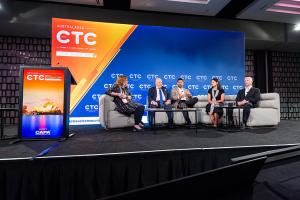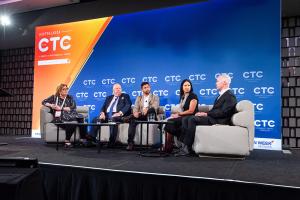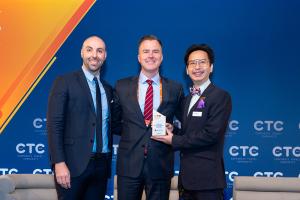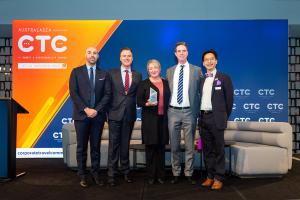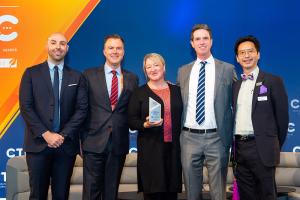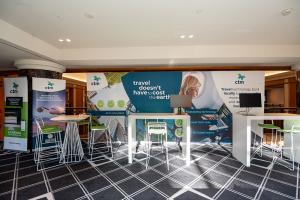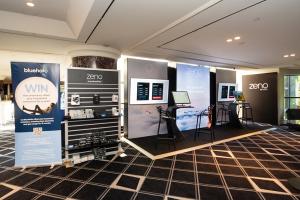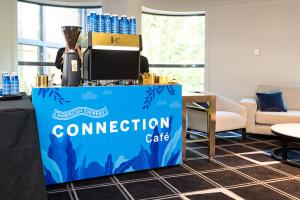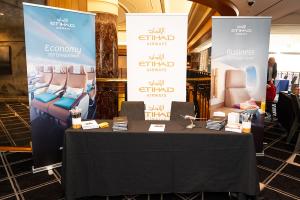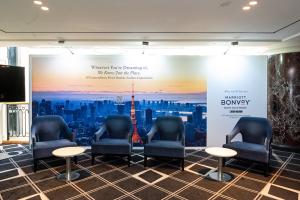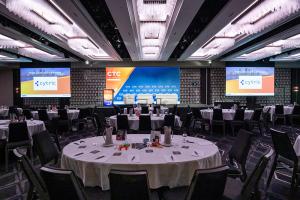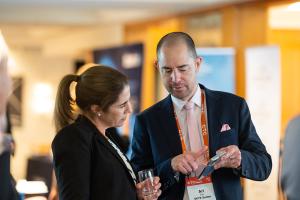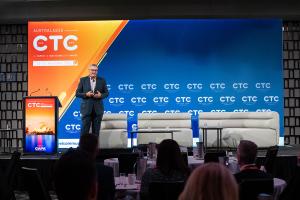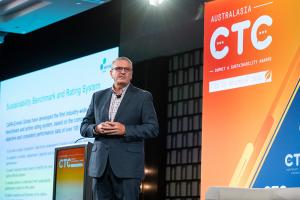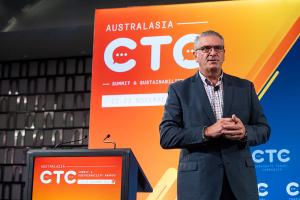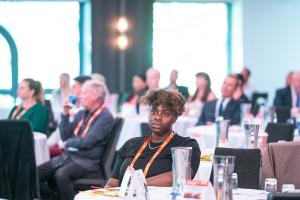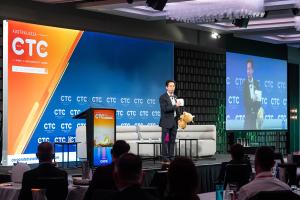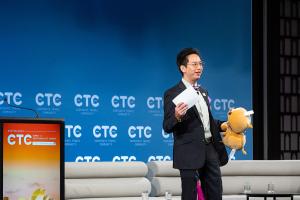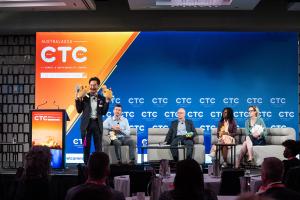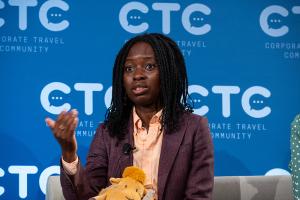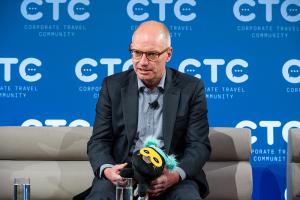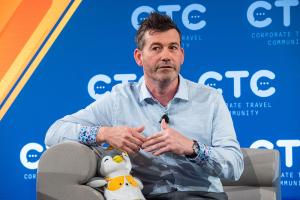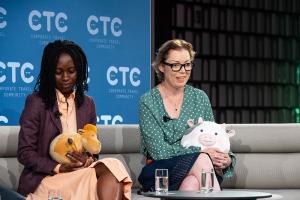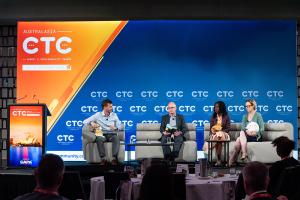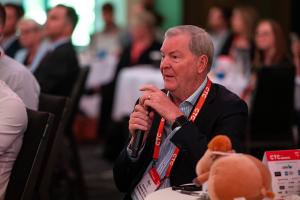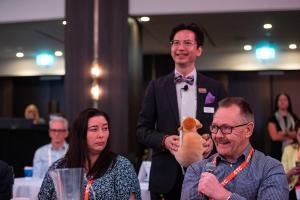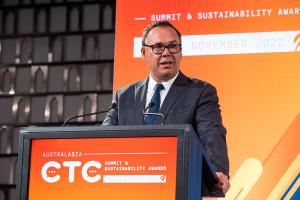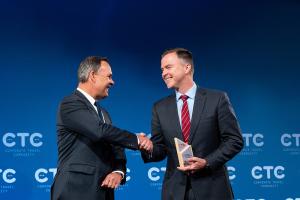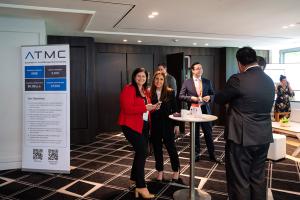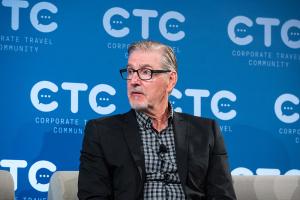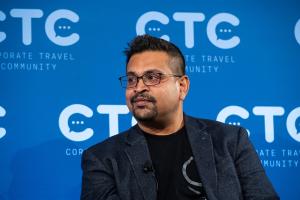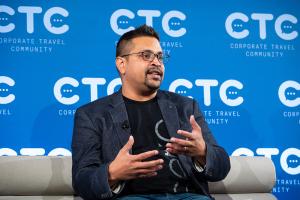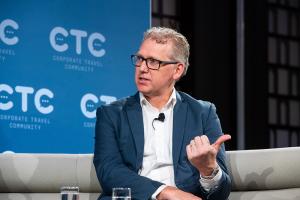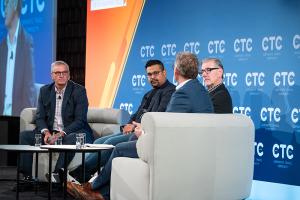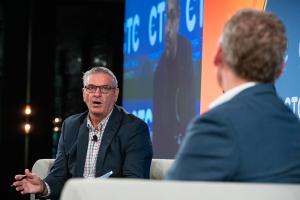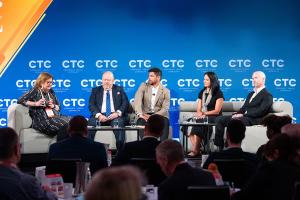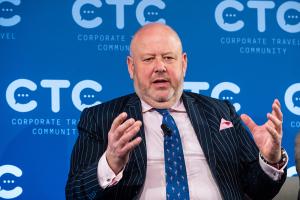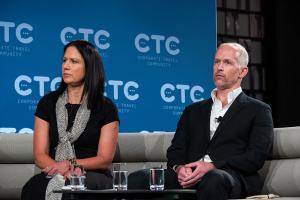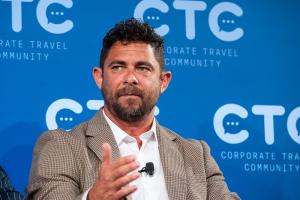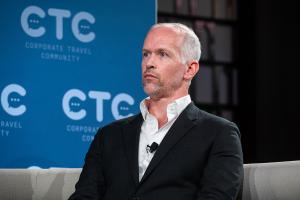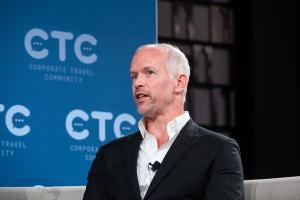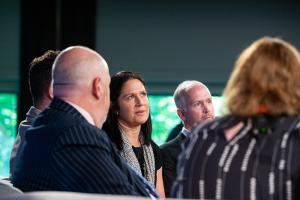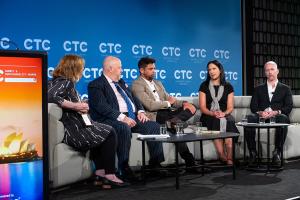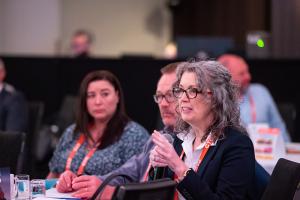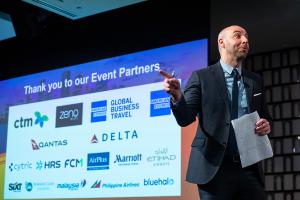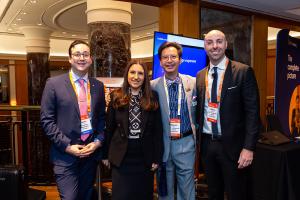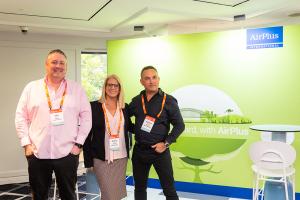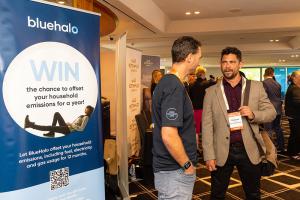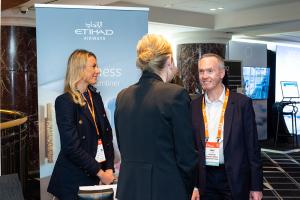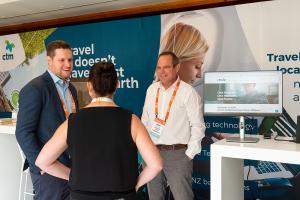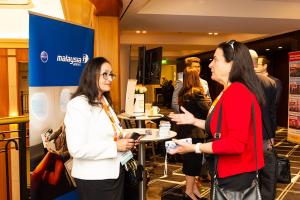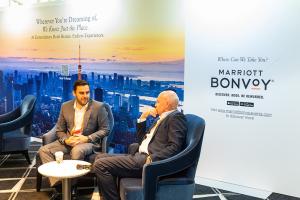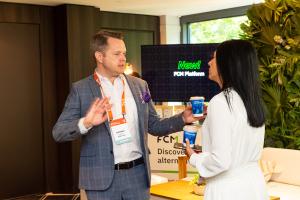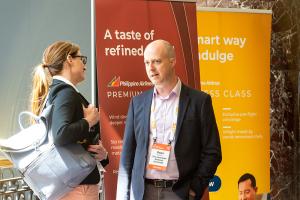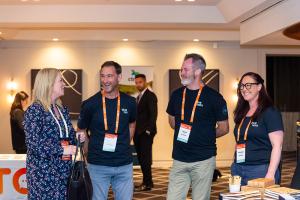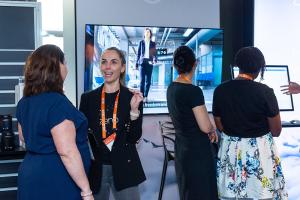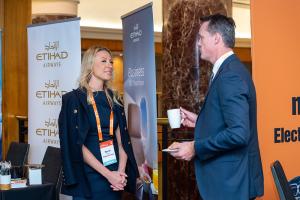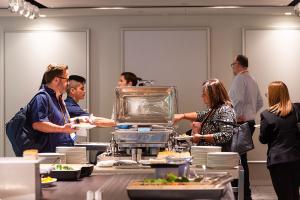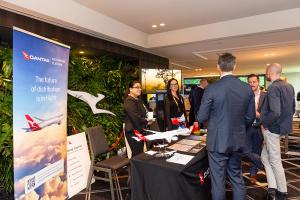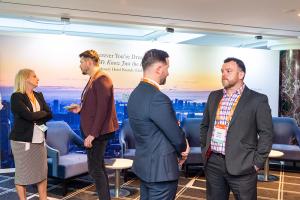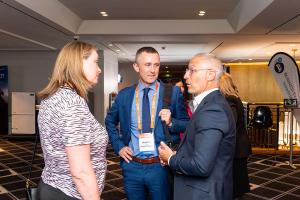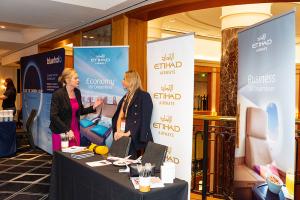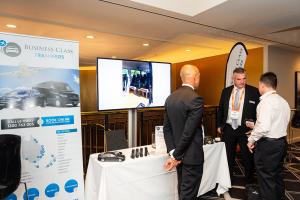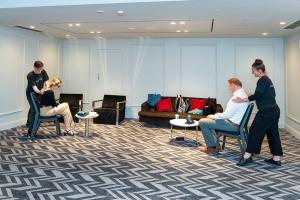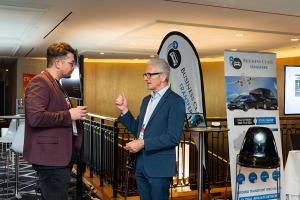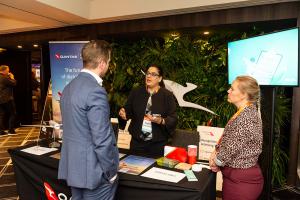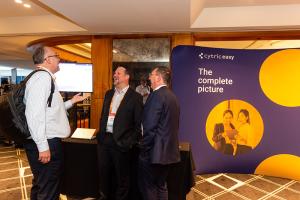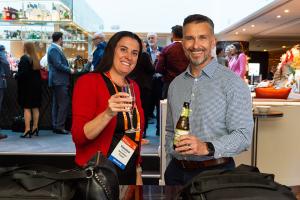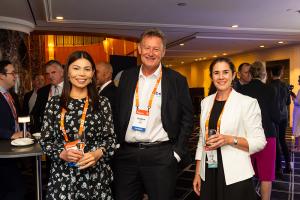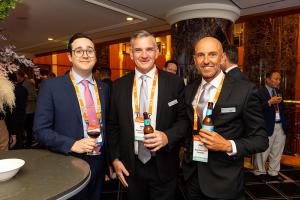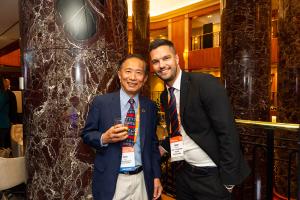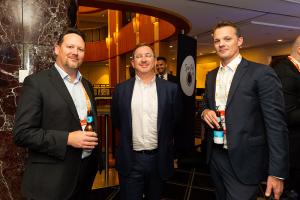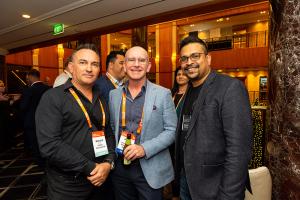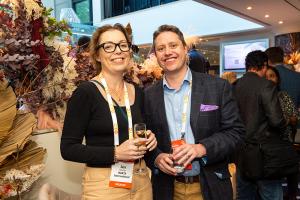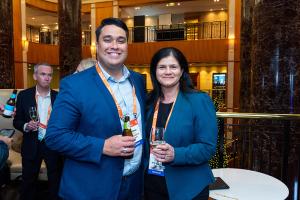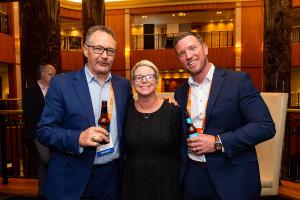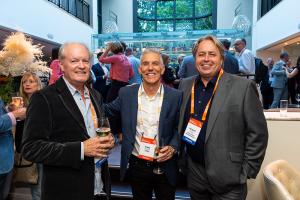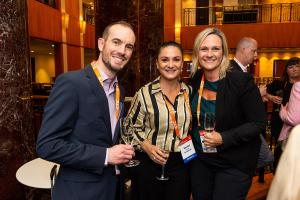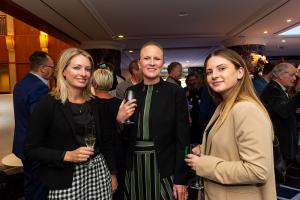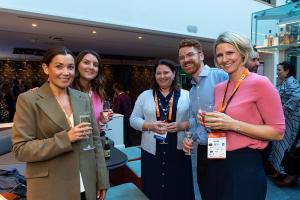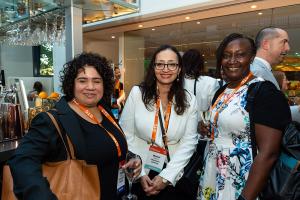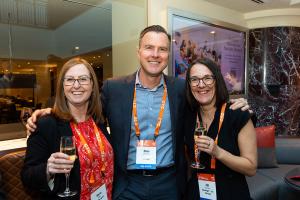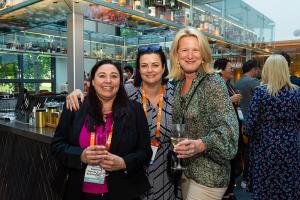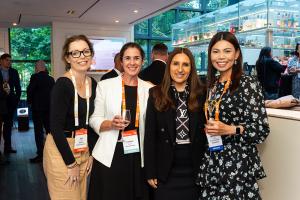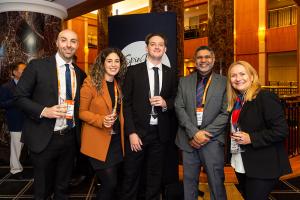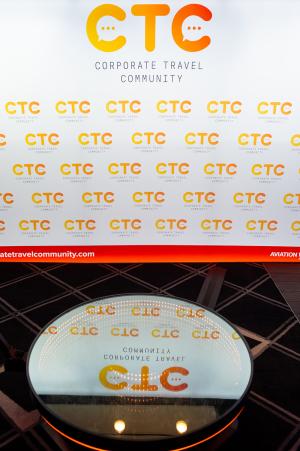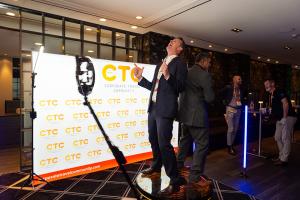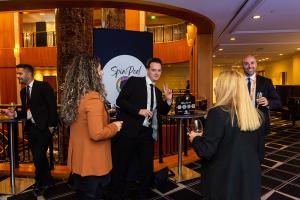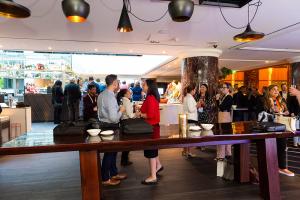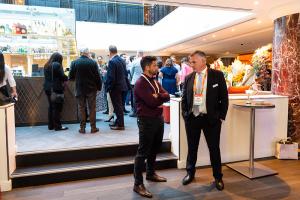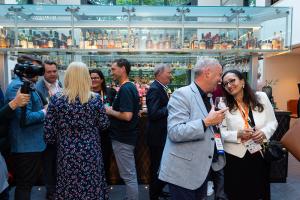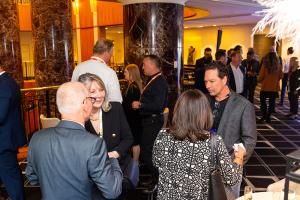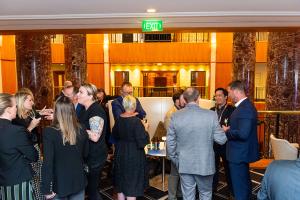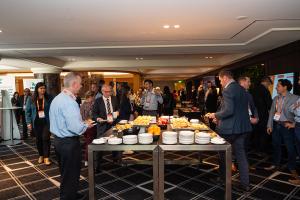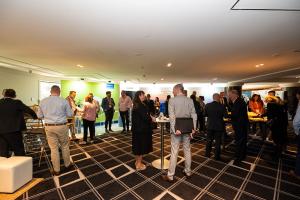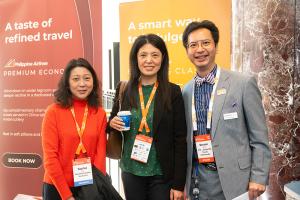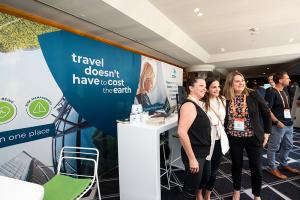CTC Australasia Corporate Travel Summit & Sustainability Awards
Many thanks for your participation in the CTC Australasia Corporate Travel Summit & Sustainability Awards, hosted in Sydney on 22-23 November 2022.
We trust it was a valuable experience and you gained
some fresh insights and contacts.
A selection of presentations*, photos and other resources are available for your download.
*Please note that not all speaker presentations are available for download
only those who have given us permission to publish their presentations are available.
For specific photo requests, please send an email to [email protected]
CTC's upcoming 2023 events include:
For more information on these events, please visit: https://centreforaviation.com/events/
If there is anything we can assist you with in the meantime, please don't hesitate to contact
CAPA Events: [email protected]
With Thanks to our Event Partners
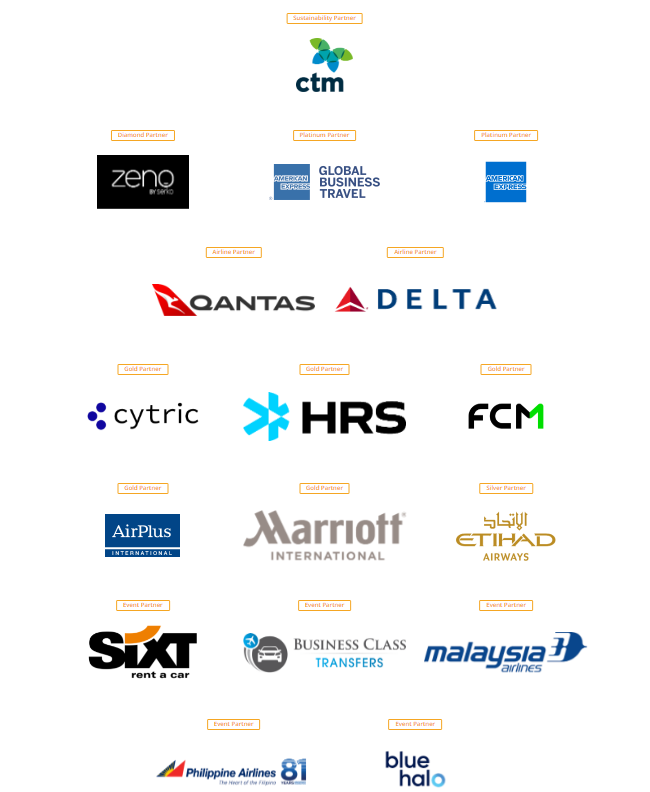
|
AGENDA DAY 1 - Tuesday 22 November 2022 |
|||
|
8.00- 9.00 |
Registration |
||
|
CHAIRPERSON: CAPA – Centre for Aviation, Global Content & Marketing Director, Marco Navarria |
|||
|
09:00- 09:05
|
Welcome and Introduction from CAPA
CAPA – Centre for Aviation, Global Content & Marketing Director, Marco Navarria |
||
|
09:05- 09:20
|
CTC Outlook: State of the Industry {Download Presentation} Corporate Travel Community, Executive Director, Benson Tang |
||
|
09:20- 09:50
|
The Metaverse: The Future of Travel? Did you know that the global metaverse market size was $47 Bn in 2022 and is predicted to grow 39% yearly to $678 Bn by 2030?
In 'The Metaverse - The Future of Travel?' you will:
Metaverse Sydney, Chair, & Web3Academy, Chief Metaverse Officer, Patricia Haueiss |
||
|
09:50- 09:55
|
Future technologies for corporate travel with Serko
Serko, SVP of APAC, Murray Warner |
||
|
09:55- 10:40
|
Industry Leaders Overview: The essential checklist for a successful return to travel As corporates look to begin travelling again, the landscape of the industry looks very different to what it did pre-pandemic. The traveller journey itself is more complex and companies with a mobile workforce have new standards to meet for traveller duty of care and a different set of criteria to address when it comes to risk management. In this important discussion, we bring together industry leaders to help travel managers navigate the post-pandemic travel landscape.
Moderator: ATMC, Chairperson, Tass Messinis Panel: Airplus International, Director APAC Operations, Piers Gibbons Lamb Weston, Sr. Director, Procurement | Capitals & Indirects, Bhart Sarin AMEX GBT, Director Of Commercial Australia and Remote Account Management India, Danielle Russom Marriott International, Regional Director, Global Sales Australia and New Zealand, Karryn Cutcheon AMEX, VP and Regional General Manager, Asia Pacific, Joanne Sully Airplus, Director APAC, David Newington |
||
|
10:40- 11:10
|
Coffee Break & Networking |
||
|
11:10- 11:40
|
Duty of Care: Are you ignoring the rear-view mirror? {Download Presentation} Travel has rebounded, but are organisations being caught out by not looking in the rear-view mirror? The travel experience has changed, not only due to pandemics, current conflicts and political unrest, but staffing shortages across the board, making the whole travel experience tough. In this important discussion we talk through your 2023 travel risk programme musts to support your travellers health, safety and wellbeing and meet your duty of care and legal requirements. Moderator:
Speakers:
|
||
|
11:40- 12:25
|
Talent acquisition – Ensuring future fail safes for labour requirements The recovery of travel in North America and Europe has been significantly impacted by staffing issues. From a lack of pilots across the United States of America to difficulty recruiting and training security and ground staff at airports across Europe – the impact on air travel has been significant. This has hit business travellers particularly hard as airlines have been forced to consolidate schedules. Frequency has always been essential to corporate travel itineraries. But now where there were previously two or three efficient flight options, there is often now just one that involves significant lost time waiting at connecting points on a journey or offers an inconvenient schedule for travellers. Then there is the issue of securing the best talent for your own organisation. The COVID-19 pandemic led to a huge reduction in working hours, reversed job growth, and pushed millions into working poverty across Asia Pacific. A report by the International Labour Organization (ILO) warns that given the scope of the damage to labour markets, the overall size of the fiscal response in the region has been insufficient, especially in the region’s developing economies. As a result of fiscal expenditure gaps, the crisis is likely to exacerbate inequalities among countries in the Asia and the Pacific.
Moderator: BostonairAPAC, General Manager, Nicholas Rapp Qantas, Executive Manager, Global Sales and Distribution, Igor Kwiatkowski Informa Markets, HR Manager, Robyn Sgambellone Reed & Mackay Australia, Managing Director, David Greenland CTC - Corporate Travel Community, Ambassador, Virginia Fitzpatrick |
||
|
12:25- 13:00
|
Trends and innovations shaping the way businesses stay, work and pay During this session, we will discuss the latest trends, innovations and research shaping the way businesses stay, work and pay including:
HRS Group, Chief Data Storyteller, Philippa Johns HRS Group, CEO Pay, Kurt Knackstedt |
||
|
13:00- 14:00
|
Lunch Break & Networking
|
||
|
14:00- 14:45
|
Airline Corner: An update on the traveller experience {Download Presentation} In most parts of the world life has returned to normal following the COVID-19 pandemic, but for travel the impact of the biggest global health crisis in modern times continues to influence on a daily basis. Flight schedules – especially on international city pairs – is still notably down on pre-pandemic levels and where flights are operating schedules remain reduced with lack of frequencies on some routes impeding the return of business travel. There is also the indelible impact on traveller behaviour and the need for duty of care and traveller well-being taking on a more dominant position. The recovery process has been tough on the airlines and airports which were forced to cut to the bone to survive unprecedented periods of restrictions and then immediately ramp back up to meet demand. This panel will provide insights directly from airlines with an update on some of the challenges they have faced with meeting post pandemic demand.
Moderator: CTC - Corporate Travel Community, Ambassador, Virginia Fitzpatrick CAPA - Centre for Aviation, Head of Research, Simon Elsegood Etihad Airways, General Manager Australia & New Zealand, Sarah Built Qantas, Executive Manager, Global Sales and Distribution, Igor Kwiatkowski |
||
|
14:45- 15:05
|
Expectations for travel in 2030 {Download Presentation} What are your expectations for the future of travel? How would you like to see the corporate travel industry evolve during the next 10 to 15 years? While it’s difficult to predict exactly how the traveller experience will change into the future, most people have clear expectations for what they’d like to see come to fruition by 2030.
But to what extent will companies prioritise the traveller experience and individual preferences in the coming years? How important is the traveller experience compared to other travel program objectives such as cost minimisation?
Join Felicity Burke, General Manager of FCM Consulting APAC, as she explores Gen Z and the Millennial generation’s expectations for travel in 2030. Felicity will be joined onstage by Dean Easton, The Australian National University Manager, Travel Services and Murray Warner, Senior Vice President Asia Pacific, Serko, to unpack how organisations are managing the rise of employee-centric travel programs and traveller expectations for industry change. MODERATOR: FcM, General Manager Consulting APAC, Felicity Burke Panel Serko, SVP of APAC, Murray Warner The Australian National University, Manager, Travel Services, Dean Easton |
||
|
15:05- 15:25
|
8 Trends Shaping Travel Management to 2030 {Download Presentation} What are the macro trends driving the future landscape of corporate travel & meetings management? We explore eight key trends, identify variances in impact across APAC and other regions, and deep dive on the most impactful trends to affect travel & meetings management strategy and operation. Join with your peers to help develop strategies for success in the decade ahead. Learning Objectives 1. Consider the big picture, how it affects companies and your program 2. Understand perspective variances between North America, Europe & APAC 3. Develop strategies for success in the decade ahead |
||
|
15:25- 15:55
|
Coffee Break & Networking |
||
|
15:55- 16:35
|
Technology Workshop: Digital Transformation strategies and distribution The travel and tourism industry has been among the early adopters of digital transformation, but processes are continuing to evolve. For businesses, digital adaptation is not optional but rather an indispensable condition to continue being competitive and respond to the continuously growing consumers’ demands. Personalisation has become a crucial element of the travel business, mobile devices are now standard search and booking channels, AI-powered applications and technology are more commonplace, and data is driving digital transformation journeys. For travel buyers it creates a complicated framework and understanding the technologies that exist to help themselves and travellers in a post COVID world is complex. This workshop will discuss processes to help buyers understand what they should look out for with technology partners, look at how buyers can truly integrate into their technology partners, and question if technology is the answer to all the buyers' problems. Moderator: CTC - Corporate Travel Community, Executive Director, Benson Tang Serko, SVP of APAC, Murray Warner Amadeus, Commercial Development Resellers and Corporations, Ingrid Picard HRS Group, CEO Pay, Kurt Knackstedt Transurban, Global Procurement & Expense, Stephanie Maisano DataCom, Group Procurement Manager, Tony Rurkpuritat Informa, Group Travel Director & Head of Corporate Events, Melissa Willock |
||
|
16:35- 17:15
|
New TMC models – A burst of change is coming, will the old model still be relevant? There has been a shift from unmanaged to managed business travel, partially because of the rising logistical challenges of travel and high chances for disruption, the increased focus on optimising travel spend, and the renewed emphasis on duty of care It is clear that buyers are now more reliant on corporate travel companies than pre-COVID as they require more information than previously. Booking policies have become stricter, budgets are tighter and at the same time travellers demand and travel patterns are changing. Companies that engage in business travel are once again seeing the value of TMCs. New needs are emerging, and corporate clients are looking to TMCs to help meet those new demands – to provide a whole new level of service and information, to manage sustainability issues, and to keep travel costs under control.
Moderator: ATMC, Chairperson, Tass Messinis Intro done - redo when FCM join CTM, GM New South Wales, Karen McGilvray Uniglobe Travel Asia Pacific, Managing Director Asia Pacific, David Hughes GBT proposed session FCTG Corporate Australia, Managing Director, Melissa Elf |
||
|
17:15 - 17:20 |
Day 1 Closing Remarks & Break |
||
|
AGENDA DAY 2 - Wednesday 23 November 2022 |
|
|
8.00- 9.00 |
Registration |
|
CHAIRPERSON: CAPA – Centre for Aviation, Global Content & Marketing Director, Marco Navarria |
|
|
09:00- 09:05
|
Welcome and Introduction to Day 2 |
|
09:05- 09:35
|
Environmental Sustainability - An in-depth look at the CAPA-Envest 2022 Benchmarking Report Envest, Steve Limbrick |
|
09:35- 10:15
|
Environmental Sustainability – The Corporate Travel Buyer's voice
Sustainability has become a corporate travel priority, but increased costs, limited data and lack of transparent information still present barriers to making business travel more sustainable. Collaboration will be critical to supporting an enhanced corporate travel policy for travel buyers. As travel continues its recovery from the COVID-19 pandemic, corporations are refocusing on their green agendas. A majority believe sustainability will be either a ‘moderate’ or ‘high’ priority in the next 12 months, while many have become more focused on the sustainability objectives of their corporate travel programme. Companies are making significant changes to their core operations and processes to become more sustainable and travel procurement plays a key role in sustainability strategies. Travel buyers now have stricter guidelines and increasingly travel teams are seeking to identify locations and travel partners who hold current or future solutions in sustainability.
Moderator: CTC - Corporate Travel Community, Executive Director, Benson Tang Roche, Sr Procurement Partnering Mgr, APAC, David Staples UNSW, Travel Service Manager, David Golding NARTA International, Head of Procurement & Sustainable Solutions, Jen Barclay ResMed Australia, Head of Procurement/Procurement Operations, Ama Aidoo-Sam
|
|
10:15- 10:30
|
CTC Australasia Environmental Sustainability Travel Program of the Year 2022 Award Macquarie, Sioban CTM, CEO Australia & New Zealand, Greg McCarthy |
|
10:30- 11:00
|
Coffee Break & Networking |
|
11:00- 11:45
|
Environmental Sustainability – The industry responds with innovation and technology
Businesses are having to take a much more pro-active stance with their sustainability drives. With cries of ‘greenwashing’ over previous offset schemes travel providers now need to be transparent in their communications and honest in their activity. It has been said that the least-emitting flight “is one that doesn’t happen at all”. While we will see substitution to other forms of travel for short-haul (especially short-distance domestic travel) that is not a practical solution in a world where long-haul travel has proliferated and will present an increasing challenge for travel suppliers. Climate scientists say that to get climate change under control, businesses need to reduce their emissions and consumers will become increasingly demanding as the subject of sustainability dominates the headlines.
Moderator: Envest, Executive Director, David Wills Panel: Serko, Head of Channel Sales and Enablement, Dinesh Kumar CTM, Head of ESG & Sustainability, John Nicholls ATMC, Executive Director, Oliver Tams HRS Group, CEO Government, Insurance and Crisis Solutions, Ana Pedersen |
|
11:45- 12:35
|
The other elements of ESG: it is not just about ‘E’ It is now almost 20 years since the term ESG – standing for environmental, social and corporate governance – was first coined and it has now grown from a corporate social responsibility initiative launched by the United Nations into a global phenomenon. ESG is an umbrella term that refers to frameworks designed to be integrated into an organisation's strategy to create enterprise value by expanding the organisations objectives to include the identification, assessment and management of sustainability-related risks and opportunities in respect to all organisational stakeholders (including but not limited to customers, suppliers and employees) and the environment. However, the focus to date and has more heavily fallen on the first letter of the acronym, but there is much more to delivering on ESG promises than solely looking at the environment, even if that is a worthy cause. Businesses need to ensure that in the fog of environmental strategies that they are not forgetting about social and corporate governance initiatives. Corporate social responsibility (CSR) is a form of international private business self-regulation which aims to contribute to societal goals of a philanthropic, activist, or charitable nature by engaging in or supporting volunteering or ethically oriented practices. CSR is a self-regulating business model that helps a company be socially accountable to itself, its stakeholders, and the public. By practicing CSR, also called corporate citizenship, companies can be conscious of the kind of impact they are having on all aspects of society, including economic, social, and environmental. CSR helps both improve various aspects of society as well as promote a positive brand image of companies. But how can the corporate travel industry ensure it meets each of the elements of ESG? Panel: International SOS, Security Director, James Robertson AMEX GBT, Director Of Commercial Australia and Remote Account Management India, Danielle Russom In Travel Group, Director, Dwayne Good News Limited, Head of Travel, Gayle Cunningham |
|
12:30- 12:35
|
CLOSING Remarks |
